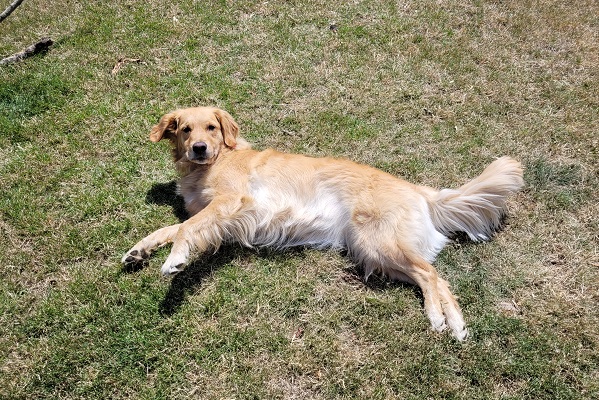 Credit: Jazmin Campbell / Chronicle.lu
Credit: Jazmin Campbell / Chronicle.lu
It is no secret that Luxembourg is home to quite a few pet owners, among them many dog lovers, whether they have adopted their canine companion here in Luxembourg (or in one of the neighbouring countries) or, as is the case for several expatriates, brought their pet(s) from their former home abroad to their new home in the Grand Duchy.
There are a few points to take into consideration before getting or bringing a dog to Luxembourg. A lot of this goes back to the law of 9 May 2008 concerning dogs (available, in French, here):
- all dogs must be electronically identified (microchipped) within four months of their birth;
- all dogs must be kept on a leash inside built-up areas, on public transport, in the common areas of apartment buildings, in public car parks, at petrol stations and at public events, as well as on sports fields, cycle paths and sports trails. Elsewhere, dog owners must maintain control of their dog and put him / her back on a leash if needed. Different municipalities may determine their own exceptions;
- pet owners must declare their dog to the municipal administration of their municipality of residence within four months of their dog’s birth. This declaration includes a certificate issued by an approved veterinarian attesting to the identification of the breed or gender of the dog, as well as confirming that the animal has been microchipped and vaccinated against rabies. A document certifying the conclusion of an insurance contract (guaranteeing the civil liability of the dog owner for any third-party damage) with a company authorised to operate in Luxembourg is also required. Dog owners must make a new declaration within one month of moving to a new municipality. Similarly, any change of ownership must be declared to the relevant municipality within one month;
- dog owners must pay an annual tax of at least €10 (the actual amount depends on the municipality of residence). Guide dogs as well as police, army, customs or rescue dogs are exempt from this tax;
- specific rules apply to the owners of dog breeds deemed to be potentially dangerous, namely the Staffordshire Bull Terrier, the American Staffordshire Terrier and the Mastiff and Tosa breeds, as well as morphologically similar breeds. The owners of such breeds must participate in specific dog training courses. They are also required to submit a second declaration to their municipality of residence in relation to said training (as well as castration in certain cases) within eighteen months of their dog’s birth.
According to the animal protection law of 27 June 2018 (available, in French, here), dog (and cat) breeders require authorisation from Luxembourg’s Minister of Agriculture, Viticulture and Rural Development. The same applies to animal shelters. There are various registered kennel and breed clubs in Luxembourg; further information is available on the following websites: http://fcl-dog.lu; https://www.ccac.lu; https://www.jagdhunde.lu. There are also several animal shelters (all of which are currently full) and animal welfare organisations in the Grand Duchy, including: Asile National pour Animaux; Association pour la Protection des Animaux – Schifflange; Asile pour Animaux Régional – Dudelange; Société Eschoise pour la Protection des Animaux; Association Luxembourgeoise pour la Protection des Animaux Asbl; Een Herz vir Streuner Asbl; Amiavy Asbl; Mini-Miez Asbl; Déieren an Nout Asbl; Privaten Déiereschutz Asbl.
In addition, to simplify travel within the European Union (EU), dogs in Luxembourg should have an EU pet passport, a document issued by an authorised veterinarian in an EU Member State.
Another aspect to consider is that it can be difficult (but not impossible) to rent pet-friendly accommodation in Luxembourg, so the search for an apartment or a house for newcomers with a dog may require a bit more patience. Often, there is advice on this topic (and other topics related to pets in Luxembourg) on Facebook groups such as “Pet owners of Luxembourg”. It may also be worth checking with different real estate agencies.








